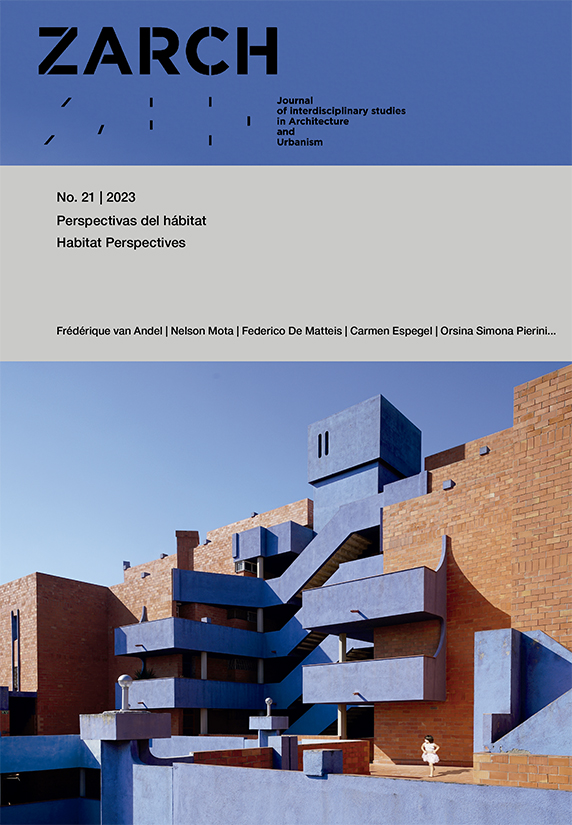A Critical Perspective on the Current State of Collective Housing. A Conversation with Carmen Espegel
DOI:
https://doi.org/10.26754/ojs_zarch/zarch.2023219756Keywords:
Collective Housing, Habitat, Graphic Atlas, Urban Scale, Domestic ScaleAbstract
Carmen Espegel is Professor of Architectural Projects at the Higher Technical School of Architecture of the Polytechnic University of Madrid (ETSAM). Her career has encompassed three closely interrelated fields of activity: teaching, research and the profession of an architect. With her published works and her design projects she has bridged the gap between critique and practice of architecture, specifically, contemporary collective housing. Her profound knowledge drives apart from the purely theoretical and offers the viewpoint of a seasoned architect. She leads the Master of Advanced Architecture in Madrid and the Master in Collective Housing, which is jointly run by the Polytechnic University of Madrid and the Swiss Federal Institute of Technology in Zurich. She has collaborated with numerous universities in Europe, South America, the United States and Canada—this interview took place in Quebec, where Carmen is Visiting Professor at the city’s Laval University. Her research activity, focused on three fundamental branches—collective housing, critical theory and women and architecture—has driven her to lead the Collective Housing Research Group (GIVCO) and capture her critical thinking, with an important contribution in the area of residential design. In her role as a professional architect, her extensive and wide-ranging activity in tenders and works, which have received international recognition and awards, complements her incursions on the present-day manifestations of habitat, contributing to its development.
Our conversation is organised in several themes that serve to connect personal reflections and aspects on the contemporary alternatives inherent in collective housing.
Downloads
References
Bauman, Zygmunt. Liquid Modernity. Cambridge: Poli Press, 1997.
Cánovas, Andrés; Espegel, Carmen; de Lapuerta, José María; Martínez Arroyo, Carmen; Pemjean, Rodrigo. Vivienda colectiva en España 1929-1992. Valencia: General de Ediciones de Arquitectura, 2013.
_____. Vivienda colectiva en España 1992-2015. Valencia: General de Ediciones de Arquitectura, 2016.
Cánovas, Andrés; Espegel, Carmen: de Lapuerta José María; Feliz, Sálvora. Atlas de los poblados dirigidos de Madrid, 1956-1966. Madrid: Ediciones Asimétricas, 2021.
de Lapuerta, José María; Espegel, Carmen; Cánovas, Andrés. Housetag. European Collective Housing 2000-2021. Valencia: General de Ediciones de Arquitectura, 2021.
Espegel, Carmen. Textos críticos. Madrid: Ediciones Asimétricas, 2022.
Espegel, Carmen; Cánovas, Andrés; de Lapuerta, José María. Amaneceres domésticos. Temas de vivienda colectiva en la Europa del siglo XX. Madrid: Ediciones Asimétricas, 2022.
Rapoport, Amos. House Form and Culture. Englewood Cliffs, N.J.: Prentice-Hall, 1969.
Rybczynski, Witold. La casa, historia de una idea. Madrid: Nerea, 1989.


